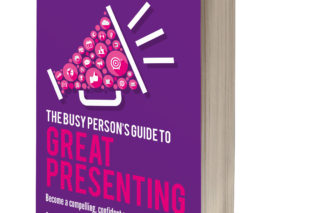
The Single Biggest Reason People Aren’t Buying Your Service
Is there any area in professional services more mysterious and full of nonsense than sales?
From myths about ‘embedded commands’ and ‘hypnotic language’ through to the latest ‘fool-proof sales system’ there’s more snake oil among sales gurus and books than you’ll find at the Centre for Snake Oil Studies in Snake Oil Land.
Many larger professional services firms build complex sales processes and obsess over the tiniest details of wording on websites and brochures. Or they train salespeople to shake hands firmly and make small talk about a client’s family. Smaller firms often try and implement sales solutions that are better suited to large organisations. Or they run a bit of training on ‘closing techniques’.
Some of these things can help, but they don’t get to the heart of what’s involved in sales. At its core, sales is a conversation about an exchange of value. And to want to exchange value, you have to trust the person and organisation you’re trading with. Which means:
The single biggest reason that people aren’t buying your service is that they don’t trust you.
I know that sounds harsh. Let’s break it down a bit. There are several possibilities here:
-
They don’t trust you personally. They have doubts about your competence, credibility, honesty or commitment.
-
They don’t trust the company you represent. They think you’re too generic. You’re too big (or small!). That you don’t care enough, that you make too many promises, etc …
-
They don’t trust that you’ve understood them. They might like you personally, and respect your company, but they don’t feel confident that you’ll deliver what they really need.
-
They don’t trust that your offering is significantly better for them than others in the market. You’re still a commodity – you’re a supplier rather than being the supplier.
It’s true that clients will give many reasons for not buying your service. They’ll mention time, budget, priority, inertia and so on. But many of these are often symptoms of the deeper issue of not trusting you enough.
Think of when you’ve worked with a client who knows you and trusts you – isn’t everything easier? Usually the whole process of getting the sale is quicker and easier than normal. You often bypass procurement channels, or are at least guided through them. Your client works hard to sponsor you internally and helps you to draft proposals that will suit their corporate culture.
An investment in building long-term trust with your existing and future clients is one of the best ways to develop business, win more sales and do more good work. I’m amazed at how many companies do not prioritise trust. Many companies spend more time thinking about their Twitter account than they do improving their relationships with their clients!
Most of you reading this didn’t go into your industry in order to be a salesperson. You want to deliver an outstanding service to your clients. Whether you’re in accounting, architecture, marketing or consulting, you want to do good work, and be well paid for it. For many of you even the idea of ‘selling’ will be uncomfortable.
So, be natural. Stop ‘selling’ and work on building trust. It works, it’s ethical, it’s good for everyone.
Here are some of the best ways I’ve found to build trust quickly with clients and prospective clients:
-
Stop selling, start listening. Stick to the old rule ‘people love to buy, but nobody wants to be sold to’.
Many people talk too much about their own service, and too early in the sales process. Approach your conversations with clients as if you were going on a date. Stop talking about yourself, and really listen – what are their problems? What matters to them? Why are they talking about this problem now? Are they talking about the real problem, or just a surface problem? What are the internal pressures on them?
Curiosity is one of the greatest tools in the salesperson’s toolkit. Use it often.
2. Don’t be afraid to challenge what ‘the client wants’. For example, my service consists of me as a public speaker at business events and conferences. Because of that, I often get asked to faciliate workshops and run training. People will often say: ‘Can you do a half-day workshop on …?’.
I’ll often question that: ‘Why half a day’? Get back to the problem that needs solving before you accept the solutions that a client has proposed.
Although on paper this can sound harsh, it’s in your client’s best interests too. Although the client knows what the problem is, you’re the expert on how to solve the problem.
3. Be visible and read. We reserve a very particular kind of respect for people who talk about what they do, and who write about what they do. Present to your clients as often as possible. Find out what problems they have that you can solve and make a small presentation about them. Don’t ‘sell’, just give your knowledge away. Write about how clients can solve their problems. Help them with articles, blog posts and reports. You’ll find you quickly attract people who want to work with you. Public speaking and writing are unbeatable for building trust and influence.
3. Educate the client in meetings. Many of us in professional services have a huge amount of knowledge. Don’t use this to bore your client by talking about your processes, systems and services. Use it to educate. Help them see their problem more clearly. Help them understand the implications of the problem, and help them achieve clarity over solutions.
4. The opposite of number 3- don’t be afraid to admit your ignorance. No one is in possession of every fact. Bad salespeople pretend to have all the answers. Trusted partners aren’t afraid to admit that they don’t know – yet.
5. Act like a colleague or shareholder, rather than supplier. Everything you do and say should be in the best interests of the client. When I’m working with my clients on their sales, I often say to them ‘How would you advise your client if you were a shareholder in the business?’. It’s a quick way to focus on what really matters.
6. Think ‘conversation’ rather than ‘presentation’. Far too often people prepare generic sales presentations, rather than getting to know the client. Many of my best client meetings have happened after I’ve said ‘I can give you a presentation, or we can just go through what’s on your mind …’. The latter option usually works better for everyone.
7. When you have to give a presentation, still think ‘conversation’ – leave plenty of time for questions and engagement. Also, remember that presenting (and sales in general) is as much about emotion as information. The best presentations build trust because they make an emotional connection – they are focused on the client and relevant to their needs.
Don’t overlook the importance of trust. Trust is probably the only area where your service is competitor-proof. Whatever the service is that you deliver, chances are that there’s another provider somewhere who can do the same thing, at roughly the same quality and the same fee as you. But if you have built trust – real, honest trust, not sales-training-fakey trust (you know what I’m talking about) with your client, everything becomes easier, and you will sell more – to the benefit of both of you.
What about you? Have you benefited from a trust-based business relationship, or suffered because of a lack of trust? How do you go about building trust with clients, and do you do it enough?
More insights ...
The Busy Person's Guide To Great Presenting
Is there any area in professional services more mysterious and full of nonsense than sales? From myths about ‘embedded commands’ […]
Read More ›How to stop being boring
Is there any area in professional services more mysterious and full of nonsense than sales? From myths about ‘embedded commands’ […]
Read More ›Your presentations are costing you money
Is there any area in professional services more mysterious and full of nonsense than sales? From myths about ‘embedded commands’ […]
Read More ›Set sales fees in threes
Is there any area in professional services more mysterious and full of nonsense than sales? From myths about ‘embedded commands’ […]
Read More ›How to build your unique brand
Is there any area in professional services more mysterious and full of nonsense than sales? From myths about ‘embedded commands’ […]
Read More ›Why I don't take sales referral fees and neither (probably) should you.
Is there any area in professional services more mysterious and full of nonsense than sales? From myths about ‘embedded commands’ […]
Read More ›





